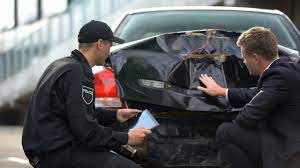Car accidents are a common occurrence in the United States, but if you are involved in a car accident that is not your fault, it can have life-altering consequences. The steps you take after your accident will determine if you can get the compensation you need and deserve for your injuries. Filing a claim is the first step to getting compensation, but when it comes time to start building your case, one of the most important parts is gathering evidence.
The thought of gathering evidence can conjure various questions: What kind of evidence do I need in my car accident case and how do I obtain it? The types of evidence you may need can change somewhat depending on the facts of your case, such as what type of vehicle you were struck by, but there are certain types of evidence and certain facts that are universal to car accident cases. We will break down some of the types of evidence that are accepted in car accident cases and how to go about obtaining it.
Start With Your Injuries
Proving your injuries is the most essential part of your case. Without proving that you were hurt from the accident, the rest of your damages will seem insignificant by comparison and will ruin your chances of a fair settlement. “After your accident, be sure to tell the doctor about every symptom, even if you believe it’s minor”, note accident attorneys at The Fang Law Firm, “ask for a detailed medical report with the doctor’s treatment recommendations and your prognosis for the future.”
Your doctor or the person who provided treatment for your injuries will have detailed records detailing your visit, the nature of your injuries, x-rays or other tests, prognosis of injuries, treatments prescribed, medications and other information. They should also be able to provide you with bills and other information that will prove financial damages in your case.
Other Losses Related to the Accident
When attempting to seek compensation for your accident, the more documentation of your losses you have, the better it is for your case. Medical bills and costs are part of the equation, but there are many other losses that you may claim as damages in your case.
One place to start is looking at lost wages and lost potential income while you recover from your accident. Lost wages are those earnings that you would normally receive from your job, lost potential income refers to any potential earnings you may have made from business deals and other transactions that are now negatively impacted.
Proving these damages involves providing receipts, pay stubs, bank records, invoices, business documents, deeds of sale or other paperwork that shows financial losses or missed opportunities for financial gain.
Other expenses may also be claimed: home healthcare, therapy and counseling, transportation, travel expenses, and legal fees are some additional avenues of recouping losses after a car accident. The same types of documents for other financial losses apply to these claims as well.
Proving Fault
Proving your damages is one part of the evidence you’ll need for your case. The second part is evidence proving who is at fault for your accident. This is where gathering evidence can be more difficult.
If you were able to take pictures of the scene of the accident, that can significantly help prove your case. Being able to obtain pictures, video, dash cam footage, or witness testimony of the conditions that lead up to the accident will help determine the primary cause of the accident and which driver was at fault. This usually involves showing that the other driver was negligent in some way.
If you have all these facts in order it will make it that much easier to prove your case and get the compensation you are entitled to. Fault and evidence of damages will make it more likely that you receive a fair settlement for your car accident case and if the case goes to trial, more likely that the court will rule in your favor.

